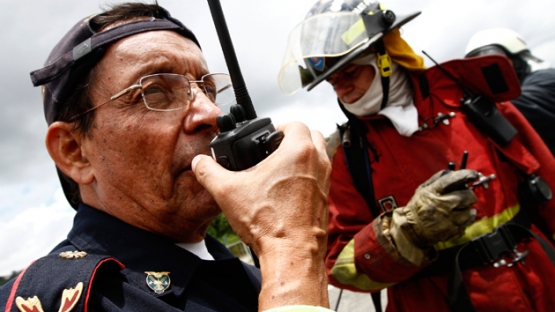After almost two years of preparatory work, the First School of Emergency Management in Latin America and the Caribbean is ready to be launched in Rio de Janeiro, Brazil. The school will take place from 9-27 November at the premises of the Institute of Radioprotection and Dosimetry of the National Nuclear Energy Commission (CNEN) of Brazil.
The school syllabus has been designed by the IAEA's Incident and Emergency Centre (IEC) with the aim of ensuring that participants receive a comprehensive grounding in the basic principles of emergency preparedness and response (EPR) to radiation emergencies, based on IAEA Safety Standards and guidelines.
With the support of the IAEA technical cooperation programme, and with funding from the European Commission, 30 participants from 16 Latin American and the Caribbean countries will be the first professionals to attend this school. Their goal is to improve their abilities to facilitate the effective implementation and coordination of EPR arrangements in their countries.
The school is a component in the IEC's strategy for Capacity Building on Emergency Preparedness and Response. The syllabus was developed during consultancy meetings with international experts, and a first pilot course was conducted at the International Centre for Theoretical Physics (ICTP) in Trieste, Italy from 14-25 September 2015. The pilot course received very positive feedback from the participants.
The First School of Emergency Management in Latin America will be funded by the European Commission and implemented within the framework of the IAEA technical cooperation project RLA/9/076, which aims to strengthen national capabilities for response to radiation emergencies in Latin America and the Caribbean.
| [[{"attributes":{},"fields":{}}]] | Project RLA/9/076 is carried out with funding by the European Union and the IAEA. |
| [[{"attributes":{},"fields":{}}]] | The school is carried in cooperation with the Institute of Radiation Protection and Dosimetry |


